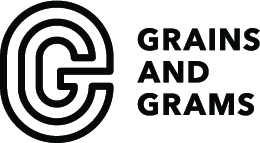12 Camels
“A camel is a horse designed by a committee.” Alec Issigonis
This phrase implies that often when decisions are made by too many people, undesired outcomes tend to follow. Camel is not as handsome, not as streamlined and above all, very slow compared to the mythical mustang. The ungracious creature does not make an attractive vehicle. But unknowingly, thanks to the diversity in biological evolution the survival strategy of a camel in its own environment is second to none. It is possible that the committee may desire a horse but ended up with a camel instead, disappointed by their own expectations they failed to realise that the camel is quite a specialist in its own right.
Similarly, the seemingly simple act of creating something non-existing (or at least better, different than market competitors) when commissioned, is influenced by briefs, trends, sales goals, target audience preferences, safety measures, cost ratio, efficiency, social, technological, economic, historical, ethical, legal, environmental and cultural factors.
Grains & Grams initiated a project called 12 Camels where invited artists, woodworkers, jewellery makers, and designers drew inspiration from the notion that in design, as in life, we are often subject to various external factors, things you have no control over. Originally as part of Bangkok Design Week 2022, 12 Camels expanded for a second edition called 24 Camels at Kalm Village, an art, crafts and cultural centre in Chiang Mai.
Using either found, reclaimed or fabricated objects the participants agreed to create a three-legged stool—possibly the most elementary piece of furniture there is. The gathered stool parts were randomly assigned by the computer randomizer and distributed among them to minimise human interference and thus create a condition beyond control. The elements had no limitation of material, shape or size and eventually included rope, bones, empty egg cartons, broom, plastic cups, wheel and popsicle sticks, among many other seemingly useless objects. Some makers were lucky, receiving parts with rather obvious functionalities, but others had it worse. With roughly one month to come up with the stool, makers experienced the fairness, better yet, the unfairness of life. Where is the boundary of what we wish for? The answer may well be the boundary of our imagination, the line that marks the known from the unknown. A place unreachable by thoughts and speculations as its incomprehensibility has its foundation in the void of experience.
Oftentimes designers are in a fortunate situation where they have a luxury of choice. Meaning the ability to select, combine and render a combination of materials to produce the desired outcome. There is a consensus sense of beauty or the lack of it when certain materials come together. All of which operate in the domain of knowledge. But this is true only in usual circumstances. The 12 Camels situation created a condition where the liberty of choice is removed. The real luxury is luck and the only perk is that there are 12 teams (later on expanded to 24) going through their own different versions of the unknown together. But the unknown had led the teams to places never before conceived, pushed them to make unimaginable objects, and the result was beyond their expectations. Maybe this is the real fortune.
Date: 5 February - 3 April 2022
Location: CASE Space Revolution (55/6 Charoen Krung Rd, Bangrak, Bang Rak, Bangkok 10500)
Exhibiting artists: Achariya Rojanapirom & Ratthee Phaisanchotsiri, Bora Hong, Ease Studio, Meanwhile Woodwork, Nakornsang Studio, Nanu Youttananukorn, o-d-a, Phisanu Numsiriyothin, Rudee Tancharoen, Shed Studio, Sher Maker, Torlarp Larpjaroensook




